Scott Nowson
A Language-independent and Compositional Model for Personality Trait Recognition from Short Texts
Oct 14, 2016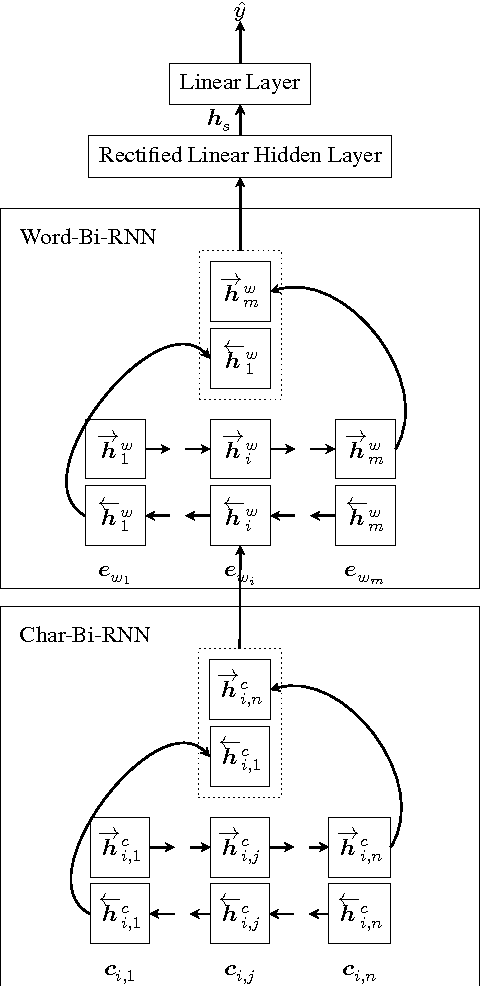
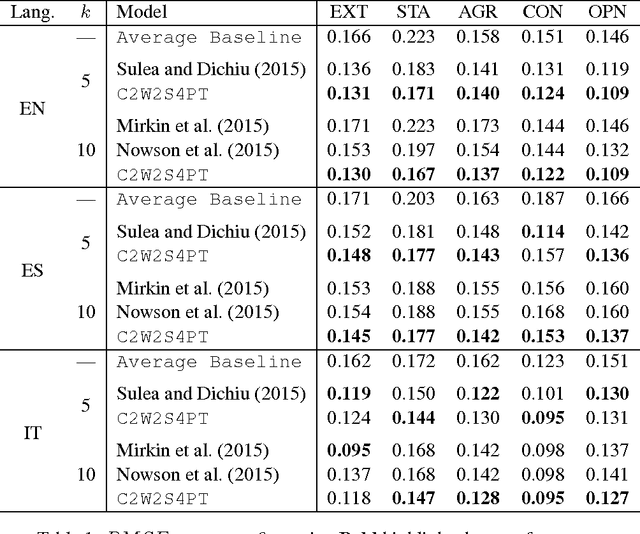
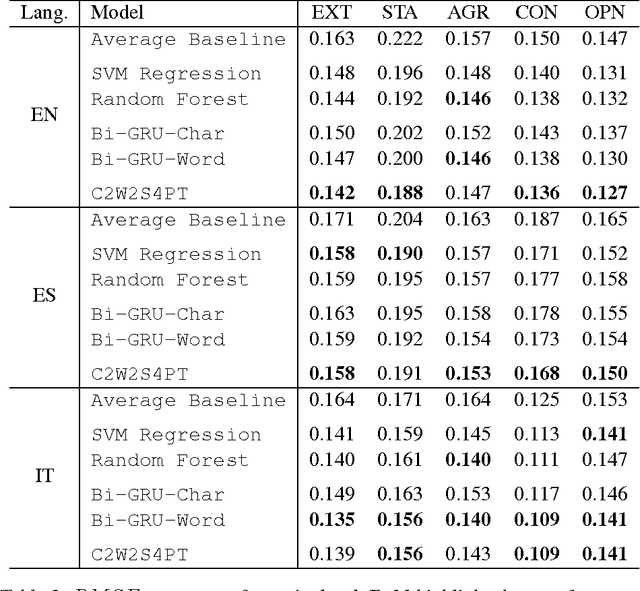
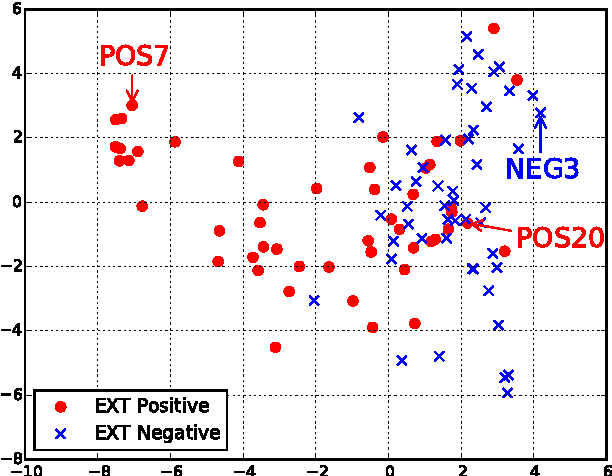
Abstract:Many methods have been used to recognize author personality traits from text, typically combining linguistic feature engineering with shallow learning models, e.g. linear regression or Support Vector Machines. This work uses deep-learning-based models and atomic features of text, the characters, to build hierarchical, vectorial word and sentence representations for trait inference. This method, applied to a corpus of tweets, shows state-of-the-art performance across five traits and three languages (English, Spanish and Italian) compared with prior work in author profiling. The results, supported by preliminary visualisation work, are encouraging for the ability to detect complex human traits.
Toward Automatic Understanding of the Function of Affective Language in Support Groups
Oct 06, 2016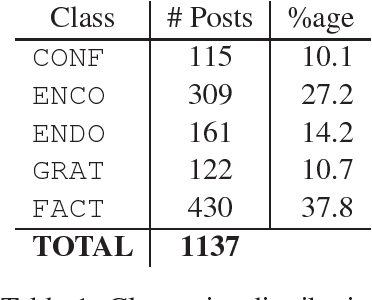
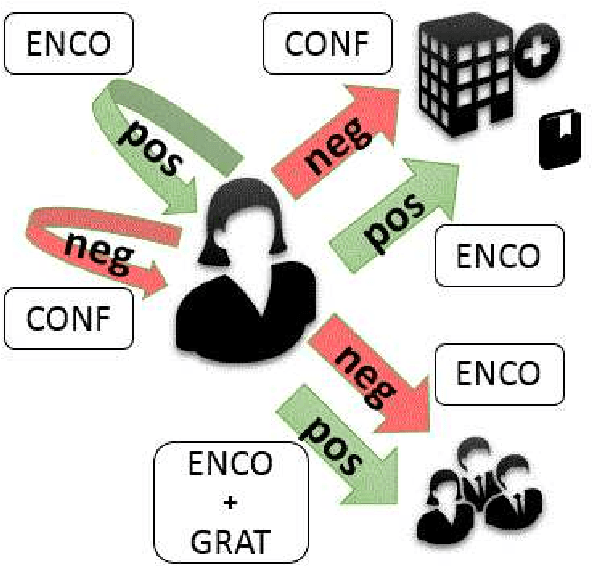
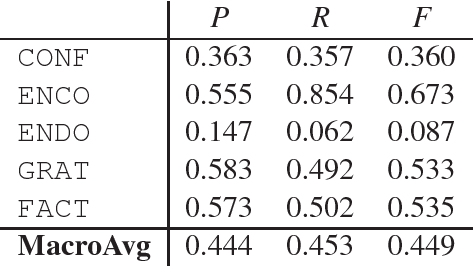
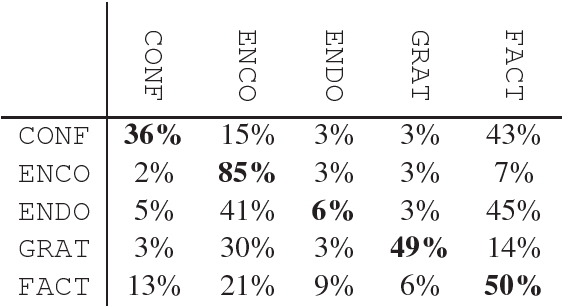
Abstract:Understanding expressions of emotions in support forums has considerable value and NLP methods are key to automating this. Many approaches understandably use subjective categories which are more fine-grained than a straightforward polarity-based spectrum. However, the definition of such categories is non-trivial and, in fact, we argue for a need to incorporate communicative elements even beyond subjectivity. To support our position, we report experiments on a sentiment-labelled corpus of posts taken from a medical support forum. We argue that not only is a more fine-grained approach to text analysis important, but simultaneously recognising the social function behind affective expressions enable a more accurate and valuable level of understanding.
 Add to Chrome
Add to Chrome Add to Firefox
Add to Firefox Add to Edge
Add to Edge